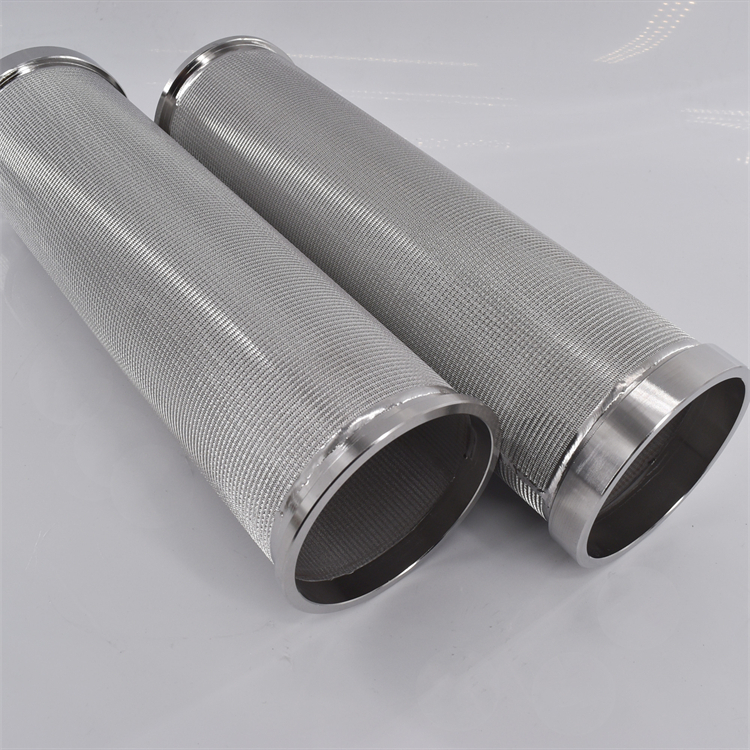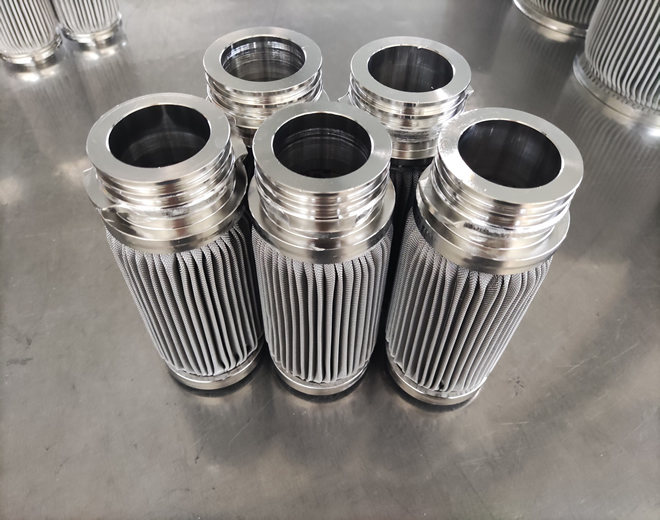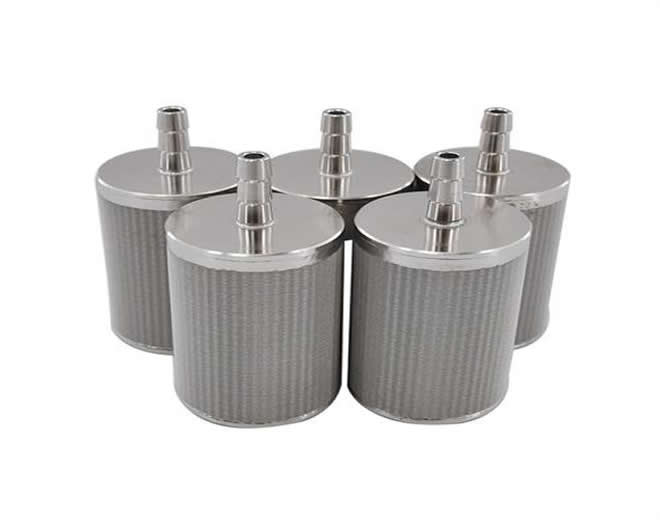Stainless steel filter elements are crucial in the chemical industry due to their excellent corrosion resistance, high-temperature tolerance, mechanical strength, and ease of cleaning. They are used to filter corrosive liquids such as acids and alkalis and to purify and separate chemical products.
Application Locations in Production Lines
1. Raw Material Filtration : Used at the initial stage to filter raw chemical materials.
- Filtration Requirements : Remove solid impurities, suspended particles, and other contaminants to ensure the purity of raw materials.
2. Intermediate Process Filtration : Applied during various stages of chemical reactions and processing.
- Filtration Requirements : Ensure the removal of by-products, catalysts, and other impurities that may affect the reaction or product quality.
3. Product Purification : Used to purify final chemical products before packaging.
- Filtration Requirements : Achieve high purity levels by removing any remaining particulates, ensuring the final product meets quality standards.
4. Recycling Systems : Integrated into systems that recycle and reuse solvents and other chemicals.
- Filtration Requirements : Remove contaminants to ensure the recycled chemicals maintain their effectiveness and do not introduce impurities into the process.
5. Waste Treatment : Employed in the treatment of chemical waste before disposal or recycling.
- Filtration Requirements : Remove harmful substances, particulates, and other contaminants to meet environmental standards and regulations.
Filtration Requirements
1. Corrosion Resistance : Given the nature of chemicals involved, stainless steel filter elements must be made of materials that can withstand corrosive environments, such as 304 or 316L stainless steel.
2. High Filtration Precision : Depending on the specific application, the filtration precision may vary. Typically, the chemical industry requires filtration precision ranging from 0.5 microns to 50 microns.
3. High-Temperature Resistance : Many chemical processes involve high temperatures. The filter elements should be able to withstand these conditions without degrading.
4. Mechanical Strength : Filters must be able to endure high pressure and mechanical stress without failing.
5. Ease of Cleaning and Regeneration : Filters should be designed for easy cleaning and regeneration to maintain efficiency and reduce downtime.
6. Compatibility : Filters must be compatible with the specific chemicals being processed to prevent reactions that could compromise the filter or the chemical product.
7. Flow and Pressure Requirements : The filter elements must be designed to handle the specific flow rates and pressure conditions of the chemical production line.
In conclusion, stainless steel filter elements are indispensable in the chemical industry, providing essential filtration and purification at various stages of production. They ensure the integrity and quality of chemical products while protecting equipment and complying with environmental regulations.



